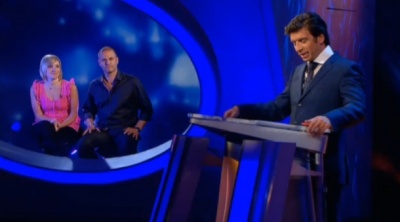Here’s another TV program that made me want to throw my shoes at the TV – Prime Minister’s Questions.
In PMQ’s, members of the opposition get to ask the PM questions about their party’s policies and actions. Ostensibly the point of this is to reach useful conclusions and actionable steps that will improve the country. Occasionally there is an inkling of that happening. But the bulk of it is shoe-throwing-bad (if you’re wondering, the other program that made me wish for more aerodynamic footwear is Big Brother).
I watch in complete disbelief as questions on issues affecting the country were answered with ducking, weaving, and ad hom attacks aimed at the asker. The aim is to “beat” the asker, rather than respond intelligently to the question. These attacks are always followed by jeering and cheering – this is all considered normal and acceptable.
This philosophy, of winning the discussion rather than productively debating, you also see disgustingly often when politicians are being interviewed on TV. It’s often done with a restatement of their position on the issue, or some random hyperbole. Something like:
Q: “How do you respond to the claim that your policies have increased unemployment?”
A: “This is a complex issue and we need to look at all our options and make the right moves going forward, to encourage growth and get the economy back on track.”
Or…
Q: “How do you respond to the claim that your policies have caused unnecessary death during the pandemic?”
A: “What I’m focused on now, is making sure that our brave front-line workers have the PPE they need to do their jobs, so they can keep themselves, and us safe.”
They don’t answer the question. They just say words.
The problem here is that free-form debating of a topic isn’t very useful. It’s too open to hacking. We are able to out-debate people even when we are wrong and they are right. We are able to change people’s minds to our way of thinking regardless of what the actual truth is. We even have scientifically researched ways of doing so — although sometimes good old-fashioned talking over the other person is all that’s needed.
This problem is exacerbated when groups of people are mass-debating because it’s hard to come to a satisfactory conclusion without someone else butting in first.
Free-form verbal debate is highly effective in finding out who the most charismatic, silver tongued and/or dominant person is. It’s not very effective in reaching productive conclusions.
For that, the scientific way is better. Scientist A writes a paper, and scientist B responds with their criticisms. Scientist A can then publish another addressing these, perhaps after collecting more data. And so on. Because it’s all laid out in writing, it is obvious to everyone if a question has been dodged.
This is too slow for politics, but maybe there’s a middle ground…
Who Dares Wins

Who Dares Wins was a game show in which opposing contestants sit in sound-proofed booths, betting on which one of them can list the most items from a particular category, for example, films starring Johnny Depp, or number 1 singles. As soon as I saw this, I knew it was essential to politics.
I propose that this studio be repurposed for interviewing politicians, CEOs of companies that have done something naughty, and perhaps built into the House of Commons itself (neon lights, dramatic music and all).
Here’s how it would work.
The interviewer sits in one booth, the politician in the other. In the middle is be a large screen to display the arguments and responses thus far. A number of online tools have been created to visually represent debates in this way, so we already know how to do that.
The interviewer asks their first question, and it appears on the screen. During this time, the microphone in the politician’s booth is switched off. The booth is sound-proof, so no one can hear them no matter how loudly they shout.
Next, the politician gets his chance to respond. The interviewer’s booth is switched off and the politician’s turns on. They get their chance to reply, and their responses appear on the screen. Then the response is analysed by an impartial adjudicator, to ensure that it does in fact answer the question, and isn’t some clever ducking and weaving.
If the answer is suitable, it goes up on the board, and the interviewer gets to challenge these responses. The process continues in this way.
If the answer isn’t suitable, it will be quite obvious to all. The interviewer or adjudicator could then challenge the response, and if it cannot be defended, that answer would be stricken from the board and they could be invited to answer again.
Personal attacks and logical fallacies from either side would also be stricken off the board, and perhaps a small punishment applied, such as a smacked bottom or a gunging.
Head-to-head debates would work in a similar way, with each debater’s booth switched off while the other is talking.
Advantages
- No longer would people be able to dodge questions without appearing to do so.
- No longer would people be able to win arguments through verbal jiu jitsu.
- No longer would people be able to win arguments by having the loudest voice.
- Potentially hilarious.
Disadvantages
- None.
Political debate is broken, people. To fix it we need sound-proofed booths and neon lights. Especially neon lights.